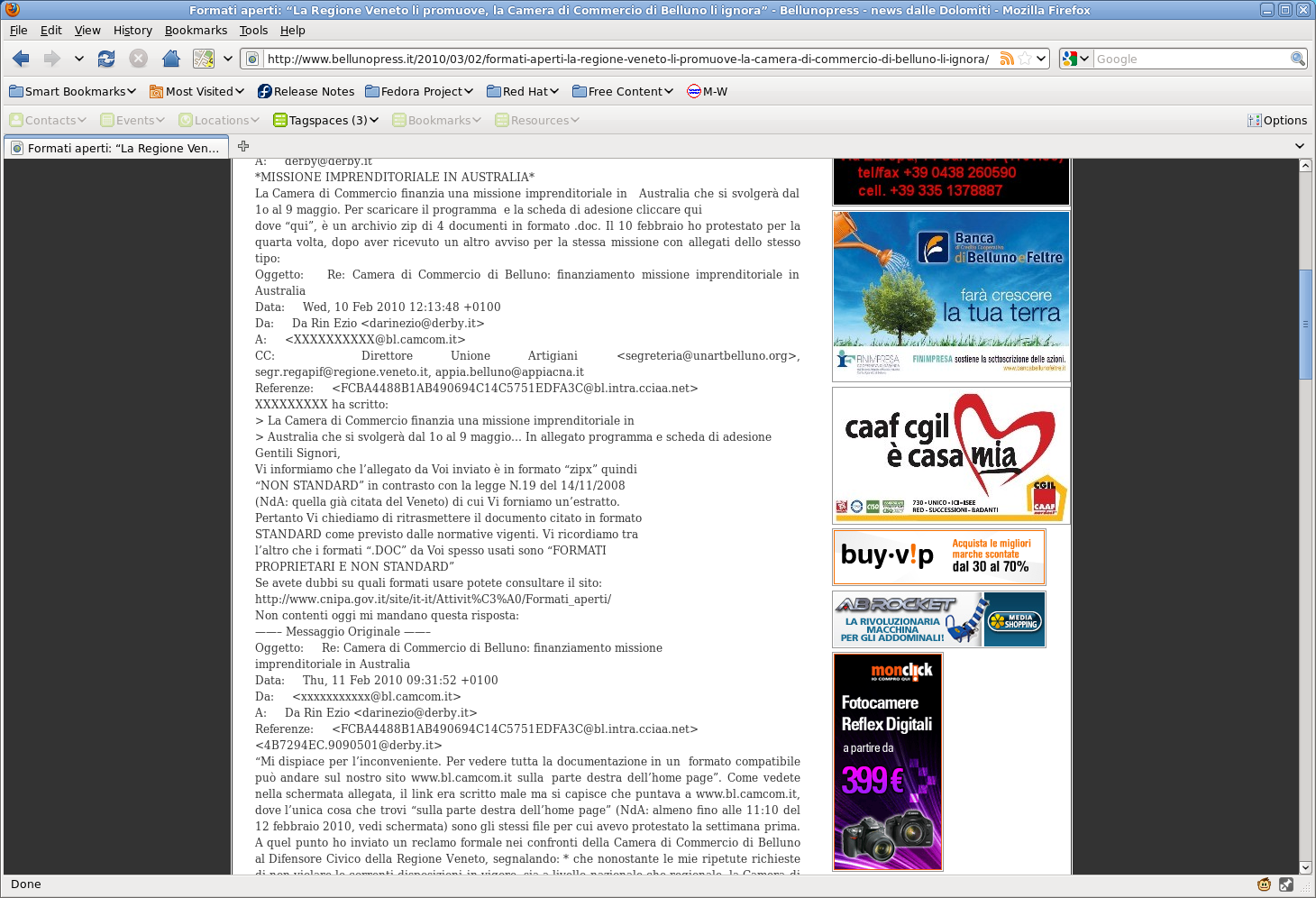All Posts
When traditional media want copyright for themselves, but violate others' copyright
UPDATE MARCH 4TH, 2010, 20.30 GMT+1: the unauthorized copy mentioned below has been removed by the staff of the Bellunopress website, shortly after I asked them to comply with the terms of use of this website. I am happy to see such a confirmation that this incident was just a temporary slip, without (as I had said since the beginning, cfr below) any intention at all to harm anybody: This page remains online, of course, as useful resource for whoever should have the same problem in the future with other websites.
Mr Label's nightmare: what really, really scares him
Author’s note: I wrote the short “novel” below in… June 2004. For several reasons I didn’t immediately publish it online, then it went lost on my hard drive. I found it again only some weeks ago, and I think the basic idea is still valid, so here it is.
The Online Loser Guide, 2010 edition
Introduction: awareness of the immense power of the Internet is so widespread these days that it is almost impossible to look a fool by using it in the wrong way. Should that be your goal, however, follow the advice below!
The "Respect Creativity" project from EMCA Italia: do they tell the whole story?
In August 2009 an administrative employee of an Italian school announced on a teachers mailing list that his school had received an invitation to a European Educational Project for protection of creativity and copyright by Dott.ssa Isabella Longo, Coordinator of EMCA Italia (EMCA is the European Music Copyright Alliance).
Does Fighting the Digital Dangers Destroy Jobs?
(this page is part of the Family Guide to Digital Freedom, 2007 edition. Please do read that introduction to know more about the Guide, especially if you mean to comment this page. Thanks)
Does Fighting the Digital Dangers Destroy Jobs?
In order to answer this question correctly it is useful to look separately at two quite different worlds. The first is the one which consists of all those who directly make a living today from the current situation. Almost all these investors, companies and workers can be divided into two large classes. One is that branch of the Information Technology industry which develops and markets proprietary software. The other is the entertainment industry, or at least that part of it which produces and redistributes movies, music and so on relying heavily on DRM and extensions of copyright as broad as possible.
